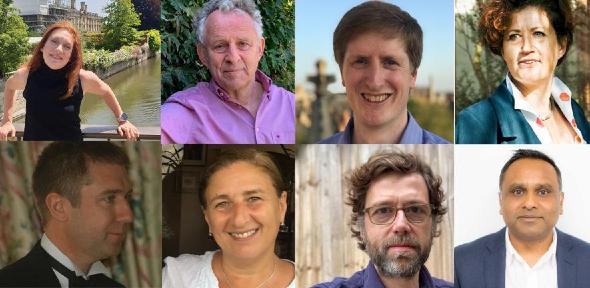
Twelve University of Cambridge researchers have won advanced grants from the European Research Council (ERC), Europe’s premier research funding body. Cambridge has the most grant winners of any UK institution, and the second-most winners overall. Their work is set to provide new insights into many subjects, such as how to deal with vast scales of data in a statistically robust way, the development of energy-efficient materials for a zero-carbon world, and the development of new treatments for degenerative disease and cancer.
Two hundred and nine senior scientists from across Europe were awarded grants in today’s announcement, representing a total of €507 million in research funding. The UK has 51 grantees in this year’s funding round, the most of any ERC participating country.
ERC grants are awarded through open competition to projects headed by starting and established researchers, irrespective of their origins, who are working or moving to work in Europe. The sole criterion for selection is scientific excellence. ERC Advanced Grants are designed to support excellent scientists in any field with a recognised track record of research achievements in the last ten years. Apart from strengthening Europe’s knowledge base, the new research projects will also lead to the creation of some 1,900 new jobs for post-doctoral fellows, PhD students and other research staff.
Three of the 12 research projects receiving the awards at the University of Cambridge are directly energy-related.
- Professor Manish Chhowalla, from the Department of Materials Science and Metallurgy, received funding for his 2D-LOTTO project, for the development of energy-efficient electronics.
"The funding will also support a team of students, early career researchers and senior academics to address the challenges of demonstrating practical tunnel field effect transistors." Professor Manish Chhowalla
- Professor Henning Sirringhaus from the Cavendish Laboratory received funding for his NANO-DECTET project, for the development of next-generation energy materials.
"Worldwide, only about a third of primary energy is converted into useful energy services: the other two thirds are wasted as heat in the various industrial, transportation, residential energy conversion and electricity generation processes. Given the urgent need to mitigate the dangerous consequences of climate change, a waste of energy on this scale needs to be addressed immediately." Professor Henning Sirringhaus
- Professor Sir Richard Friend from the Cavendish Laboratory has been awarded funding for his Spin Control in Radical Semiconductors (SCORS) project, which will explore the electronic properties of organic semiconductors that have an unpaired electron to give net magnetic spin. The project is based on a recent discovery that this unpaired electron can couple strongly to light, allowing very efficient luminescence in LEDs. Friend’s group will explore new combinations of optical excited states with magnetic spin states. This will allow new designs for LEDs and solar cells, and opportunities to control the ground state spin polarisation in spintronic devices.
Read the full University of Cambridge article here.
Image: Top L-R: Helen Williams, Richard Friend, Richard Samworth, Melinda Duer. Bottom L-R: Chris Hunter, Marta Mirazon Lahr, Marcos Martinon-Torres, Manish Chhowalla

